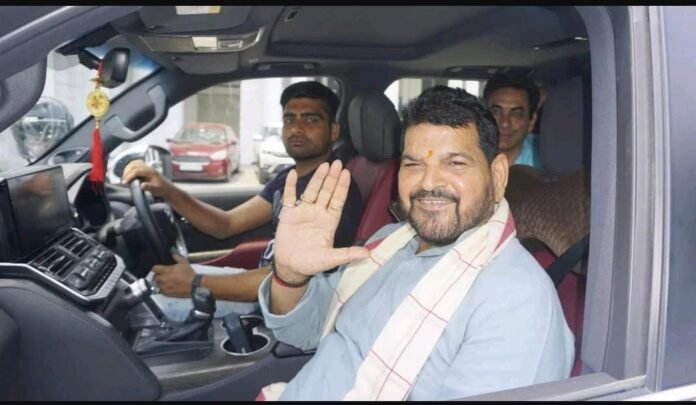In a landmark ruling, the court has reaffirmed the fundamental principle of “innocent until proven guilty” by refusing to punish Brji Bhushan, who has not been convicted of any crime. The decision comes as a significant victory for the protection of individual rights and due process in the legal system.
Brji Bhushan, a prominent figure in the recent high-profile case, had sought bail during the ongoing legal proceedings against him. The court’s decision to grant bail was met with strong opposition from some quarters, raising concerns over potential misuse of the system and the presumption of guilt before trial.
However, the court’s reasoned judgment emphasized the importance of adhering to the core tenet of justice: a person cannot be punished until proven guilty beyond a reasonable doubt in a court of law. This foundational principle serves as a safeguard against wrongful convictions and ensures that individuals are not subjected to unwarranted punishments or loss of freedom until their guilt is established through a fair trial.
The ruling underscored the significance of preserving the dignity and reputation of individuals facing legal proceedings, irrespective of their social status or public perception. The court asserted that the right to a fair trial is an inalienable right, and any attempt to infringe upon it undermines the essence of justice in a democratic society.
The case has generated considerable public interest and scrutiny, with opinions divided over the court’s decision. While some argued that Brji Bhushan should have faced immediate consequences, others recognized the need to protect the integrity of the legal process and the presumption of innocence.
The court’s stance aligns with international human rights standards and echoes the principles enshrined in various legal systems around the world. By upholding the presumption of innocence, the court sends a strong message about the importance of ensuring that individuals’ rights are safeguarded, regardless of the gravity of the allegations against them.
It is essential to note that the court’s ruling does not absolve Brji Bhushan of any alleged wrongdoing or grant him impunity. Instead, it upholds the principle that individuals facing legal charges should be treated as innocent until proven guilty, allowing them to participate actively in their defense without undue prejudice.
This landmark decision sets a crucial precedent for the fair administration of justice and will undoubtedly spark further discussions on the balance between individual rights and the imperatives of law enforcement. As society grapples with complex legal challenges, the principle of “innocent until proven guilty” remains an unwavering cornerstone of a just and equitable legal system.

